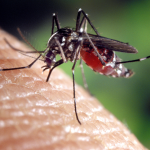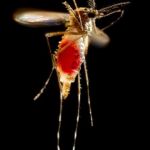Stopping the transmission of Zika and dengue viruses is a top priority in the fields of infectious disease and global health. A novel strategy, one that infects the mosquitoes with bacteria, may just be the key to stopping these viruses in their tracks.
Zika virus
Zika virus has been around since at least 1947, causing mild symptoms. All of a sudden it went full-beast mode and started producing shrinking heads in babies, and other terrible neurological outcomes. Scientists may have figured out that one little amino acid could responsible for flipping the script.
Over 1.5 million people have been infected with the Zika virus in the past two years and more than 2,200 babies born with Zika-related microcephaly. Numbers like that call for a clear understanding of how Zika virus is spread from person to person - something that we are still not totally sure about.
A study in the Malaria Journal suggests that chickens may be helpful in the fight against malaria. Unlike humans who in the United States last year consumed 90 pounds of chicken each, mosquitos are a bit fussier. Who knew?
Zika and mosquitoes are in the news virtually every day. People will be using a whole lot of DEET this summer. But, DEET is a "chemical," so that means it must be bad for you, right? Hardly.
New York City has launched a three-year Zika awareness campaign called "Fight Back NYC" for which Mayor de Blasio has slotted $21 million. The posters have a singular focus on mosquitoes and have left out another image that should also be synonymous with Zika - that of a condom. With more and more sexually transmitted cases, why are we still talking only about mosquitoes? Our Zika public awareness campaigns should look more like they did for HIV/AIDS in the 90s.
In the two months since the CDC announced that Zika virus causes microcephaly, researchers have been working tirelessly to learn how it does. A recent study brings us one step closer by showing that the Zika virus can bind to, and replicate in, cells of human placentae. This type of insight will help design a drug that could block Zika from getting to the developing fetus.
With the Olympics quickly approaching, some people planning to attend are starting to feel that the possibility of getting Zika virus is not worth the risk. The latest is the "Today" show's Savannah Guthrie, who is pregnant. But a new study says the risk of infection is very small, stating that just 16 new cases of Zika will emerge.
A team at MIT and Harvard has developed a new method for testing if a person is infected with Zika virus that is more sensitive, faster, cheaper, specific, easy to read, and can even distinguish between different strains of Zika virus. This new device may be a lynchpin in the battle against Zika and future outbreaks.


